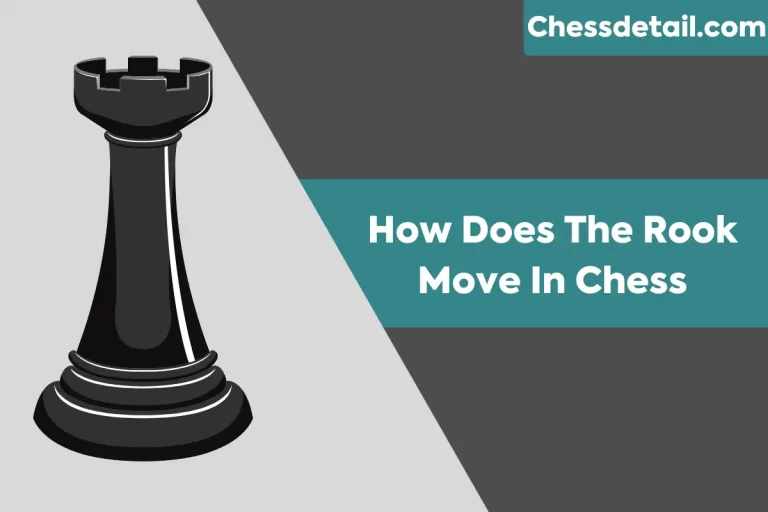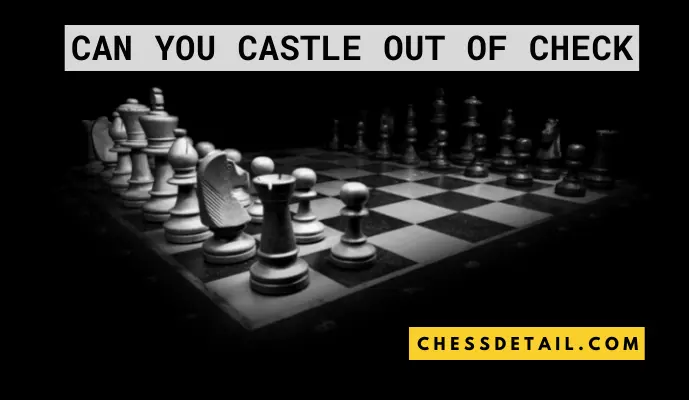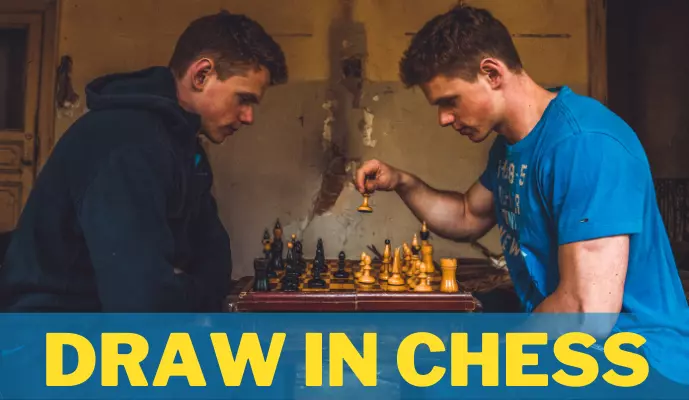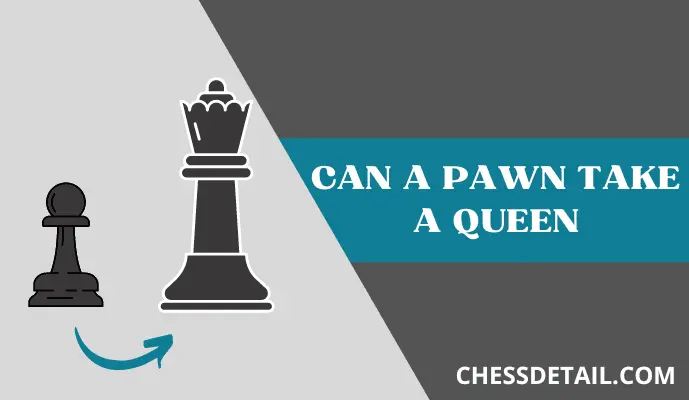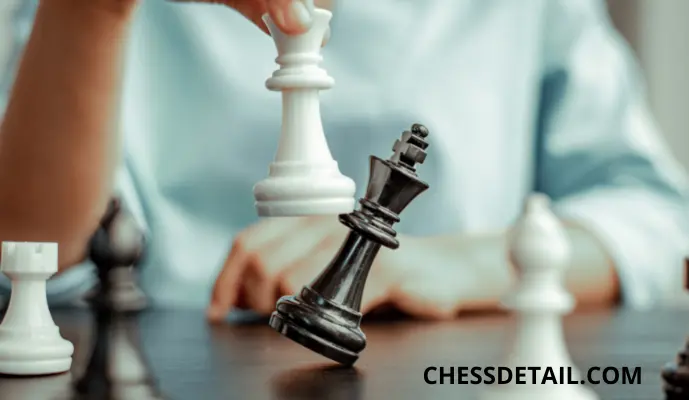7 Chess Tournament Rules [Game Format and Etiquettes]
As a rule, casual chess and tournament chess follow similar rules. Get to know the basic rules of chess by brushing up here on how the pieces move and what the object of the game is.
You may want to consider playing in a tournament when you’re ready to step up your game. The chess tournament rules and regulations must be understood before you begin. During a chess tournament, the official rulebooks provide hundreds of pages of detailed descriptions of every situation or dispute that might arise. The entire rule book isn’t expected to be memorized by players. To play in any tournament with confidence, you only need to understand some of the most important rules.
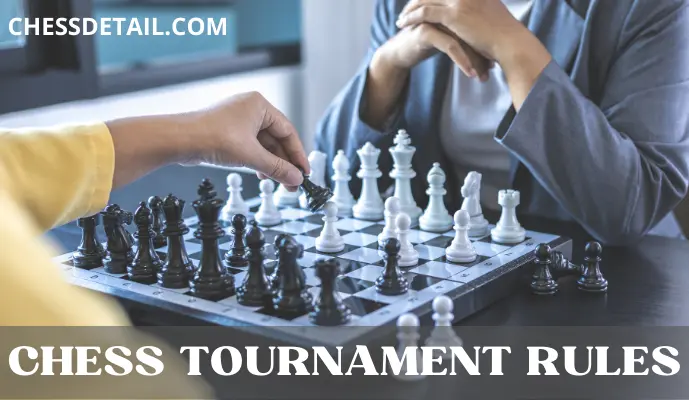
There are seven rules for chess tournaments every player should know:
- When in doubt, ask
- You have to move the Piece you touch
- Record your moves on a scoresheet
- Do not interfere with a game
- Make sure your cell phone is off
- Learn to use the chess clock
- Record the results after the match
Chess Tournament Rules [Details]
When in Doubt, Ask
There is nothing wrong with asking the tournament director to clarify your doubts. It is important that you clarify any doubts you might have about a certain tournament rule before the game begins with the tournament director.
In this way, you’ll be able to prevent waste of time when questions are asked during a game. When you and your opponent disagree about a rule or something else during a game, the smart move is to pause the clock and request clarification from the tournament director. This will save both you and your opponent time by avoiding pointless exchanges.
Move the Piece which you Touch
A touch move rule is also known as this. This rule states that whatever you actually touch must be moved. If you are a beginner, you should be aware of this rule. When you are playing in a tournament, you can’t fiddle with your pieces and moves. As a consequence, you can’t undo a careless move, so choose your pieces carefully.
When you reach out for another piece when a piece is touched by mistake, your opponent cannot violate this rule. That Piece does not have to be moved if it was touched accidentally. Then say, “I adjust” before touching the Piece if you believe it needs to be adjusted because it’s not placed correctly. You cannot use this rule against your opponent to move the Piece you just touched. Having said this, you make clear you are not trying to move the Piece by touching it.
Make sure to Record the Moves
The rule is common in most tournaments, and it is very rare for a tournament not to have this rule. The purpose of writing down moves in the majority of competitions is to provide a record of what occurred during the game. Should a dispute arise in the future, you can refer to this document to resolve it.
Thus, you should pay utmost attention when recording your moves. You should record every move you make. It would be useless to keep bad notes during a game since you would be unable to use them when disputes arise.
Do not interfere in a game
When there is no scheduled match for an athlete, he or she is allowed to wander around and watch the other matches. However, your role as an observer is limited. Therefore, no matter the reason, you should never interfere in the game. In most cases, you are not responsible for reporting an illegal move made by a certain player. You should not interfere with the players’ gameplay.
The same applies to giving any player advice or suggestions. While a game is in progress, you cannot help any player. Attempting to assist a player may result in disqualification from the tournament. As a result, always avoid interfering with ongoing games.
Make sure to turn off your cell phone
When you are playing a game, there is nothing as annoyingly distracting as a ringing phone. These games are usually timed, as we all know. Due to this, players can be easily distracted and lose precious time due to these loud phones. Because of this, the rules of tournaments have been amended to ban the use of cell phones during the games.
This rule states that you are penalized if you answer the phone while playing. This is not the worst case, as you might think. You could even forfeit the game if you use your cell phone. For that reason, make sure you switch off your phone at the start of the tournament.
Learn How to use the chess clock
As I stated previously, you need to finish your games within a stipulated time limit in these tournaments. Operating these clocks may seem difficult when you are a beginner, but with enough practice and time, you will learn how to use them to play the game effectively. Once you start counting the seconds, your brain will start to work accordingly.
You are advised to start the clock as soon as you are ready in order to ensure you do not waste time on unnecessary things. You must use the same hand that moves the pieces to hit the clock. Thus, you should practice hand coordination before the tournament a few times.
Don’t forget to Record your Result
Record the result of the game as soon as possible after the game is over. Both players must record the results of the game. Obtain assistance from your tournament director if you’re not sure how to set up your results.
Most tournaments follow one or more of these rules. There may also be additional rules for some tournaments, so make sure you familiarize yourself with them before you play. The multiple rules announced before your game start will leave you completely confused and in great trouble if you do not adhere to this step.
Frequently Asked Questions
Wrapping Up
The following set of competitive chess rules is designed for beginners as well as for players who want to play tournament-type chess at home or with friends.
Even if you aren’t playing in a chess tournament, these rules are excellent to remember when playing chess. You should be able to give yourself a distinct advantage when it comes to chess tournaments when you are aware of proper etiquette and some essential rules mentioned above.
The following list of chess game rules can be helpful if you are teaching your kids the game. This article has provided some new chess tournament formats and information which you can use to expand your chess knowledge. Would you like to see anything else added? Let me know, and I’ll address your suggestions as soon as possible. I hope you’re having fun learning chess!

